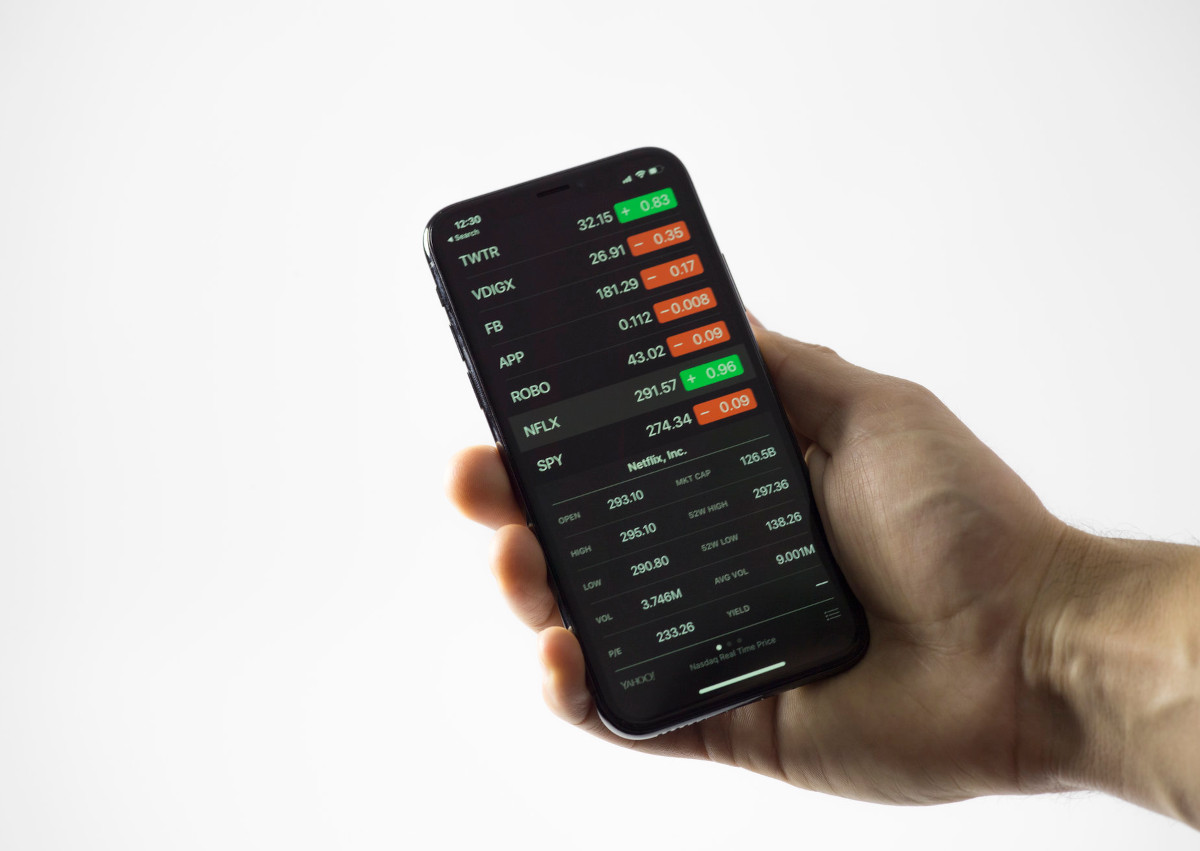(VIANEWS) – QIWI plc (QIWI), Capital Southwest Corporation (CSWC), BHP Billiton Limited (BHP) have the highest dividend yield stocks on this list.
| Financial Asset | Forward Dividend Yield | Updated (EST) |
|---|---|---|
| QIWI plc (QIWI) | 21.16% | 2023-05-10 21:14:06 |
| Capital Southwest Corporation (CSWC) | 13.13% | 2023-05-07 16:44:08 |
| BHP Billiton Limited (BHP) | 9.09% | 2023-05-21 03:11:01 |
| Preferred Bank (PFBC) | 4.82% | 2023-05-10 15:08:07 |
| Diversified Healthcare Trust (DHC) | 4.55% | 2023-05-13 23:46:07 |
| Tyson Foods (TSN) | 3.89% | 2023-05-21 03:12:44 |
| Stifel Financial Corporation (SF) | 2.49% | 2023-05-05 07:09:07 |
| Value Line (VALU) | 2.36% | 2023-05-12 01:55:30 |
Close to 2K companies listed in the Nasdaq and NYSE pay out dividends to its shareholders. The dividend yield is a dividend to price ratio showing how much a company pays out in dividends each year.
1. QIWI plc (QIWI) – Dividend Yield: 21.16%
QIWI plc’s last close was $5.67, 4.71% under its 52-week high of $5.95. Intraday change was 0%.
Qiwi plc, together with its subsidiaries, operates electronic online payment systems primarily in the Russia, Kazakhstan, Moldova, Belarus, the United Arab Emirates, and internationally. The company operates through Payment Services, Consumer Financial Services, and Rocketbank segments. It offers payment services across online, mobile, and physical channels through a network of approximately 75,000 kiosks and 18,000 terminals. The company also provides Qiwi Wallet, which is an online and mobile payment processing, and money transfer system that allows customers to pay for the products and services of merchants, as well as perform peer-to-peer money transfers through a virtual wallet; and Visa prepaid cards. In addition, it offers payment-by installments card systems under the SOVEST brand name. Further, it provides digital banking services to retail customers under the Rocketbank name; and to small and medium businesses under the Tochka name. The company was incorporated in 2007 and is based in Nicosia, Cyprus.
Earnings Per Share
As for profitability, QIWI plc has a trailing twelve months EPS of $4.94.
PE Ratio
QIWI plc has a trailing twelve months price to earnings ratio of 1.15. Meaning, the purchaser of the share is investing $1.15 for every dollar of annual earnings.
The company’s return on equity, which measures the profitability of a business relative to shareholder’s equity, for the twelve trailing months is 27.04%.
Sales Growth
QIWI plc’s sales growth is 80.8% for the ongoing quarter and 22.5% for the next.
More news about QIWI plc.
2. Capital Southwest Corporation (CSWC) – Dividend Yield: 13.13%
Capital Southwest Corporation’s last close was $17.97, 23.43% under its 52-week high of $23.47. Intraday change was 2.86%.
Capital Southwest Corporation is a business development company specializing in credit and private equity and venture capital investments in middle market companies, mezzanine, later stage, mature, late venture, emerging growth, buyouts, recapitalizations and growth capital investments. It does not invest in startups, publicly traded companies, real estate developments, project finance opportunities, oil and gas exploration businesses, troubled companies, turnarounds, and companies in which significant senior management is departing. In lower middle market, the firm typically invests in growth financing, bolt-on acquisitions, new platform acquisitions, refinancing, dividend recapitalizations, sponsor-led buyouts, and management buyouts situations. The investment structures are Unitranche debt, subordinated debt, senior debt, first and second lien debt, and preferred and common equity. The firm makes equity co-investments alongside debt investments, up to 20% of total check and only makes non-control investments. It prefers to invest in Industrial manufacturing and services, value-added distribution, healthcare products and services, business services, specialty chemicals, food and beverage, tech-enabled services and SaaS models. The firm seeks to invest in energy services and products, industrial technologies, and specialty chemicals and products. Within energy services and products, the firm seeks to invest in each segment of the industry, including upstream, midstream and downstream, excluding exploration and production with a focus on differentiated products and services, equipment and tool rental, consumable products, and drilling and completion chemicals. Within industrial technologies, it seeks to invest in automation and process controls, handling and packaging equipment, industrial filtration and fluid handling, measurement, monitoring and testing, professional tools, and sensors and instrumentation. Within and specialty chemicals and products, the firm seeks to invest in businesses that develop and manufacture highly differentiated chemicals and products including adhesives, coatings and sealants, catalysts and absorbents, cosmeceuticals, fine chemicals, flavors and fragrances, performance lubricants, polymers, plastics and composites, chemical dispensing and filtration equipment, professional and industrial trade consumables and tools, engineered solutions for HVAC, plumbing, and electrical installations, specified high performance materials for fire protection and oilfield applications. It may also invest in exceptional opportunities in building products. The firm seeks to invest in the United States. The firm seeks to make investments ranging from $5 to $25 million in securities. It seeks to make equity investments up to $5 million and debt investments between $5 million and $20 million and co-invest in transaction size upto $40 million. It prefers to invest in companies with revenues approaching above $10 million, profitable operations, historical growth rate of at least 15 percent per year. . Within the lower middle market, it seeks to invest in with less than $15 million in EBITDA and also opportunistically invests in the upper middle market, generally defined as companies with EBITDA in excess of $50 million. In addition to making direct investments, the firm allocates capital to syndicated first and second lien term loans in the upper middle market. Criteria for Upper Middle Market Syndicated 1st Lien is EBITDA Size more than $30 million, Closing Leverage greater than 4 times, investment hold size between $5 million and $7 million, investment yield greater than 6.5%. Criteria for Upper Middle Market Syndicated 2nd Lien is EBITDA Size more than $50 million, Closing Leverage greater than 6 times, investment hold size between $5 million and $7 million, investment yield greater than 9%. It prefers to take a majority and minority stake. The firm has the flexibility to hold investments for very long period in its portfolio companies. It may also invest through warrants. The firm prefers to take Board participation in its portfolio companies. Capital Southwest Corporation was founded on April 19, 1961 and is based in Dallas, Texas.
Earnings Per Share
As for profitability, Capital Southwest Corporation has a trailing twelve months EPS of $1.37.
PE Ratio
Capital Southwest Corporation has a trailing twelve months price to earnings ratio of 13.12. Meaning, the purchaser of the share is investing $13.12 for every dollar of annual earnings.
The company’s return on equity, which measures the profitability of a business relative to shareholder’s equity, for the twelve trailing months is 7.29%.
Sales Growth
Capital Southwest Corporation’s sales growth is 71.7% for the current quarter and 70.6% for the next.
More news about Capital Southwest Corporation.
3. BHP Billiton Limited (BHP) – Dividend Yield: 9.09%
BHP Billiton Limited’s last close was $58.53, 18.16% below its 52-week high of $71.52. Intraday change was 0.13%.
BHP Group Limited operates as a resources company in Australia, Europe, China, Japan, India, South Korea, the rest of Asia, North America, South America, and internationally. The company operates through Copper, Iron Ore, and Coal segments. It engages in the mining of copper, silver, zinc, molybdenum, uranium, gold, iron ore, and metallurgical and energy coal. The company is also involved in mining, smelting, and refining of nickel; and potash development activities. In addition, it provides towing, freight, marketing and trading, marketing support, finance, administrative, and other services. The company was founded in 1851 and is headquartered in Melbourne, Australia.
Earnings Per Share
As for profitability, BHP Billiton Limited has a trailing twelve months EPS of $7.19.
PE Ratio
BHP Billiton Limited has a trailing twelve months price to earnings ratio of 8.15. Meaning, the purchaser of the share is investing $8.15 for every dollar of annual earnings.
The company’s return on equity, which measures the profitability of a business relative to shareholder’s equity, for the twelve trailing months is 39.4%.
Yearly Top and Bottom Value
BHP Billiton Limited’s stock is valued at $58.56 at 17:15 EST, way below its 52-week high of $71.52 and way above its 52-week low of $46.92.
Dividend Yield
As claimed by Morningstar, Inc., the next dividend payment is on Mar 8, 2023, the estimated forward annual dividend rate is 5.3 and the estimated forward annual dividend yield is 9.09%.
More news about BHP Billiton Limited.
4. Preferred Bank (PFBC) – Dividend Yield: 4.82%
Preferred Bank’s last close was $45.61, 41.34% below its 52-week high of $77.75. Intraday change was -0.2%.
Preferred Bank provides various commercial banking products and services to small and mid-sized businesses and their owners, entrepreneurs, real estate developers and investors, professionals, and high net worth individuals in the United States. The company accepts checking, savings, and money market deposit accounts; fixed-rate and fixed maturity retail, and non-retail certificates of deposit; and individual retirement accounts. It also provides real estate mortgage loans that are secured by retail, industrial, office, special purpose, and residential single and multi-family properties; real estate construction loans; and commercial loans comprising lines of credit for working capital, term loans for capital expenditures, and commercial and stand-by letters of credit; and SBA loans. In addition, the company offers trade finance services, including commercial and export letters of credit, import lines of credit, documentary collections, international wire transfers, acceptances/trust receipt financing products, export financing, documentary collections, and bills purchase programs. Further, it provides various high-wealth banking services to wealthy individuals residing in the Pacific Rim area; and remote deposit capture, and online and mobile banking services. Additionally, the company offers various banking services to physicians, accountants, attorneys, business managers, and other professionals; and safe deposit boxes, account reconciliation, courier service, and cash management services to the manufacturing, service, and distribution companies. As of December 31, 2021, it had eleven full-service branch offices in Alhambra, Century City, City of Industry, Torrance, Arcadia, Irvine, Diamond Bar, Pico Rivera, Tarzana, and San Francisco; and one branch in Flushing, New York. The company was incorporated in 1991 and is headquartered in Los Angeles, California.
Earnings Per Share
As for profitability, Preferred Bank has a trailing twelve months EPS of $8.71.
PE Ratio
Preferred Bank has a trailing twelve months price to earnings ratio of 5.23. Meaning, the purchaser of the share is investing $5.23 for every dollar of annual earnings.
The company’s return on equity, which measures the profitability of a business relative to shareholder’s equity, for the twelve trailing months is 22.51%.
Growth Estimates Quarters
The company’s growth estimates for the present quarter is 31.6% and a drop 5% for the next.
Yearly Top and Bottom Value
Preferred Bank’s stock is valued at $45.52 at 17:15 EST, way under its 52-week high of $77.75 and above its 52-week low of $42.42.
Moving Average
Preferred Bank’s value is way below its 50-day moving average of $55.10 and way under its 200-day moving average of $67.49.
Volume
Today’s last reported volume for Preferred Bank is 84970 which is 21.28% below its average volume of 107950.
More news about Preferred Bank.
5. Diversified Healthcare Trust (DHC) – Dividend Yield: 4.55%
Diversified Healthcare Trust ‘s last close was $0.88, 62.87% below its 52-week high of $2.37. Intraday change was -0.4%.
DHC is a real estate investment trust, or REIT, that owns medical office and life science properties, senior living communities and wellness centers throughout the United States. DHC is managed by the operating subsidiary of The RMR Group Inc., an alternative asset management company that is headquartered in Newton, MA.
Earnings Per Share
As for profitability, Diversified Healthcare Trust has a trailing twelve months EPS of $-1.3.
The company’s return on equity, which measures the profitability of a business relative to shareholder’s equity, for the twelve trailing months is negative -11.26%.
More news about Diversified Healthcare Trust .
6. Tyson Foods (TSN) – Dividend Yield: 3.89%
Tyson Foods’s last close was $49.96, 45.9% below its 52-week high of $92.34. Intraday change was -0.23%.
Tyson Foods, Inc., together with its subsidiaries, operates as a food company worldwide. It operates through four segments: Beef, Pork, Chicken, and Prepared Foods. The company processes live fed cattle and live market hogs; fabricates dressed beef and pork carcasses into primal and sub-primal meat cuts, as well as case ready beef and pork, and fully cooked meats; raises and processes chickens into fresh, frozen, and value-added chicken products, including breaded chicken strips, nuggets, patties, and other ready-to-fix or fully cooked chicken parts; and supplies poultry breeding stock. It also manufactures and markets frozen and refrigerated food products, including ready-to-eat sandwiches, flame-grilled hamburgers, Philly steaks, pepperoni, bacon, breakfast sausage, turkey, lunchmeat, hot dogs, flour and corn tortilla products, appetizers, snacks, prepared meals, ethnic foods, side dishes, meat dishes, breadsticks, and processed meats under the Jimmy Dean, Hillshire Farm, Ball Park, Wright, State Fair, Aidells, and Gallo Salame brands. In addition, the company offers its products under the Tyson and ibp brands. It sells its products through its sales staff to grocery retailers, grocery wholesalers, meat distributors, warehouse club stores, military commissaries, industrial food processing companies, chain restaurants or their distributors, live markets, international export companies, and domestic distributors who serve restaurants and food service operations, such as plant and school cafeterias, convenience stores, hospitals, and other vendors, as well as through independent brokers and trading companies. The company was founded in 1935 and is headquartered in Springdale, Arkansas.
Earnings Per Share
As for profitability, Tyson Foods has a trailing twelve months EPS of $4.18.
PE Ratio
Tyson Foods has a trailing twelve months price to earnings ratio of 11.93. Meaning, the purchaser of the share is investing $11.93 for every dollar of annual earnings.
The company’s return on equity, which measures the profitability of a business relative to shareholder’s equity, for the twelve trailing months is 7.85%.
Stock Price Classification
According to the stochastic oscillator, a useful indicator of overbought and oversold conditions, Tyson Foods’s stock is considered to be oversold (<=20).
Moving Average
Tyson Foods’s value is way under its 50-day moving average of $58.51 and way below its 200-day moving average of $65.85.
More news about Tyson Foods.
7. Stifel Financial Corporation (SF) – Dividend Yield: 2.49%
Stifel Financial Corporation’s last close was $55.81, 18.85% below its 52-week high of $68.77. Intraday change was -1.73%.
Stifel Financial Corp., a financial services and bank holding company, provides retail and institutional wealth management, and investment banking services to individual investors, corporations, municipalities, and institutions in the United States, the United Kingdom, the rest of Europe, and Canada. It operates in three segments: Global Wealth Management, Institutional Group, and Other. The company provides private client services, including securities transaction and financial planning services; institutional equity and fixed income sales, trading and research, and municipal finance services; investment banking services, such as mergers and acquisitions, public offerings, and private placements; and retail and commercial banking services comprising personal and commercial lending programs, as well as deposit accounts. It also participates in and manages underwritings for corporate and public finance; and offers financial advisory and securities brokerage services. The company was founded in 1890 and is headquartered in St. Louis, Missouri.
Earnings Per Share
As for profitability, Stifel Financial Corporation has a trailing twelve months EPS of $5.12.
PE Ratio
Stifel Financial Corporation has a trailing twelve months price to earnings ratio of 10.9. Meaning, the purchaser of the share is investing $10.9 for every dollar of annual earnings.
Volume
Today’s last reported volume for Stifel Financial Corporation is 727545 which is 10.9% below its average volume of 816551.
Revenue Growth
Year-on-year quarterly revenue growth declined by 0.6%, now sitting on 4.35B for the twelve trailing months.
Growth Estimates Quarters
The company’s growth estimates for the present quarter and the next is 5% and 28.7%, respectively.
Dividend Yield
As stated by Morningstar, Inc., the next dividend payment is on Feb 27, 2023, the estimated forward annual dividend rate is 1.44 and the estimated forward annual dividend yield is 2.49%.
More news about Stifel Financial Corporation.
8. Value Line (VALU) – Dividend Yield: 2.36%
Value Line’s last close was $47.50, 59.88% under its 52-week high of $118.40. Intraday change was 0%.
Value Line, Inc., together with its subsidiaries, produces and sells investment periodicals and related publications primarily in the United States. Its investment periodicals and related publications cover a range of investments, including stocks, mutual funds, exchange traded funds (ETFs), and options. The company offers research services, such as The Value Line Investment Survey, The Value Line Investment Survey – Small and Mid-Cap, The Value Line 600, and The Value Line Fund Advisor Plus, which provide statistical and text coverage of various investment securities, with an emphasis placed on its proprietary research, analysis, and statistical ranks. It also provides niche newsletters comprising Value Line Select, Value Line Select: Dividend Income & Growth, Value Line Select: ETFs, and The Value Line Special Situations Service that offer information on a less comprehensive basis for securities that are of particular interest to subscribers; digital versions of its products through its Website, www.valueline.com, as well as The Value Line Research Center online platform; and investment analysis software, such as The Value Line Investment Analyzer, which includes data sorting and filtering tools. In addition, the company offers current and historical financial databases comprising DataFile, estimates and projections, and mutual funds through the Internet; investment analysis software; and copyright products, which include unit investment trusts, variable annuities, managed accounts, and EFTs. Further, it places advertising on behalf of the company's publications; and provides subscription fulfillment and subscriber relation services. The company serves individual and professional investors, as well as institutions, including municipal and university libraries, and investment firms. Value Line, Inc. was founded in 1931 and is headquartered in New York, New York. Value Line, Inc. is a subsidiary of Arnold Bernhard & Co, Inc.
Earnings Per Share
As for profitability, Value Line has a trailing twelve months EPS of $1.88.
PE Ratio
Value Line has a trailing twelve months price to earnings ratio of 25.27. Meaning, the purchaser of the share is investing $25.27 for every dollar of annual earnings.
The company’s return on equity, which measures the profitability of a business relative to shareholder’s equity, for the twelve trailing months is 22.08%.
Dividend Yield
As stated by Morningstar, Inc., the next dividend payment is on Apr 27, 2023, the estimated forward annual dividend rate is 1.12 and the estimated forward annual dividend yield is 2.36%.
Earnings Before Interest, Taxes, Depreciation, and Amortization
Value Line’s EBITDA is 131.92.
Volume
Today’s last reported volume for Value Line is 194 which is 85.3% below its average volume of 1320.
More news about Value Line.





